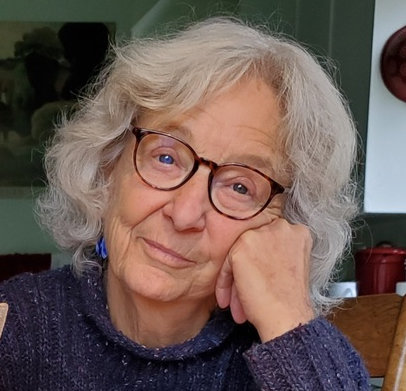By Jill Severn
Robin Wall Kimmerer, a botanist who works at the intersection of Western and indigenous science and culture, has followed her bestselling Braiding Sweetgrass with another book that calls us to think about our relationship with the natural world in both new and old ways to think about.
This time, her Christmas gift to readers is a slim volume called The Serviceberry: Abundance and Reciprocity in the Natural World. It examines the inherent and long-standing tension between the economic system based on profit and accumulation and indigenous and natural economic systems based on sharing. The theme is: “All prosperity is reciprocal.”
Your prime example of sharing is a service tree – Amelanchier alnifolia – on a neighbor’s farm. When the tree flowers, it provides pollen and nectar to bees and other insects. They in turn pollinate the flowers and thus enable the formation of berries. Birds eat the berries, fly away and poop out the seeds to plant more service trees. A variety of soil-dwelling microorganisms, the larvae of several butterfly species, and the soil-improving fallen leaves of neighboring maple trees also play a role in the serviceberry’s complex sharing economy.
She writes that in her Potawatomi tradition—part of the larger Anishinaabe peoples of the Great Lakes region—plants and animals are seen as precursors and teachers of humans’ more recent arrival. A key lesson is that humans, as relative newcomers, should be humble enough to learn how to cultivate shared relationships like those in the natural world that are not based on extraction, accumulation, profit, and hoarding.
Their criticism of capitalism would turn both Milton Friedman and Karl Marx in their graves. They are hardly interested in who owns the means of production or what effects monetary policy has on us. Instead, it is grounded in the economics of nature itself and how this anchoring – or lack thereof – shapes the world we live in and its future. It is a shame that Marx and Friedman can no longer read this book; one wonders how it might have broadened her vision.
To say that her ideas are utopian is an understatement, but she is well aware of this and only dares to hope that the culture of shared prosperity grows. She sees examples in groups across the country that run free clothing and household goods recycling stores, food banks and community gardens, and small free libraries.
We have many local programs that she would enjoy. One of them is Supper Sunday. It was started by Chris Hyde, who was retired and depressed and was sitting in his living room one evening when the idea came to him: If he made free soup for everyone, something good would happen. It has. He runs a Facebook page that lets people know what he’s making, when it will be ready, and how to message him to let him know you’ll be picking something up from his porch. A remarkable community of sharing has emerged around his idea. People give him gift cards to grocery stores, bring vegetables from their gardens, and volunteer in his. One donated a freezer for his “soup library” and others remodeled his porch to make it more accessible. Last summer he hosted Sunday afternoon barbecues in his backyard; About 30 people came with side dishes.
Now he and his allies are creating a website and an official nonprofit organization. He also advises others who have begun to replicate his idea, both here and in other cities and states.
These efforts prove Wall Kimmerer’s point that prosperity is mutual: Chris is much less depressed, the neighbors eat good food, a caring community thrives. Yet it has not curbed the destruction of nature and the persistent poverty inherent in our current economic system.
Their hope is eloquent, reasonable, but tenuous. But as she writes, “We live in the tension between what is and what is possible.”
Despite the great distance between her vision and our current global reality, this book is a gift of wisdom and hope.
Jill Severn writes from her home in Olympia, where she grows vegetables, flowers and a small flock of chickens. She loves conversations among gardeners. Start by sending her an email at jill@theJOLTnews.com




